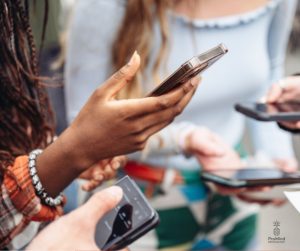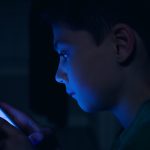Let’s be real: social media can be a beautiful mess. It’s where young people can express themselves, find inspiration, and connect with the world. But, as the documentary, The Social Dilemma shows us, there’s a darker side to the scroll.
Algorithms push content that keeps us hooked — and young minds are especially vulnerable. With every swipe, the comparison game kicks in, and the “likes” become personal. Social media becomes more than a tool; it becomes a mirror. But it’s a distorted one, showing us only the polished, perfect moments of others’ lives.
Studies (and our own work with clients) tell us that social media affects mental health. Teens report higher levels of anxiety and FOMO, leading to a cycle of refresh, compare, and repeat. When digital validation becomes tied to self-worth, it’s easy to see how young people feel lost.

So, How Do We Help?
- Check in, don’t check out: Encourage regular digital breaks. Teach young people to question what they see online. Is it real? Is it healthy?
- Real-life connections matter: Face-to-face relationships build self-esteem in ways that “likes” just don’t.
- Practice conscious consumption: Challenge them to follow accounts that uplift and inspire rather than create self-doubt.
The goal isn’t to avoid social media but to use it intentionally. Let’s guide young people toward a space where they control the scroll and live on their own terms.
Practical Steps to Detox Mindfully
If it’s time for a reset, here are some strategies to help unplug and come back to centre:
- Set Boundaries with Intention
Establish tech-free zones, like during meals or in the first hour of the day. Try setting time limits on social media apps — even 10 minutes less a day can make a big difference over time. - Find Your Triggers
Notice when and why you reach for your phone. Is it out of boredom, stress, or habit? Replace the reflex with another activity: a walk, deep breathing, or even a quick stretch. - Practice a 24-Hour Digital Detox
A complete break, even for just a day, can help reset your relationship with social media. It might feel uncomfortable at first, but a day unplugged can reveal a sense of freedom and connection to the world around you. - Journal the Journey
Reflect on how you feel during and after your detox. Writing down your thoughts can help you identify what you miss about social media — and what you don’t. Use this awareness to create healthier habits.
Social media is here to stay, but that doesn’t mean it has to control us. With small steps, we can shift from being passive consumers to mindful participants, guiding young people toward resilience and self-awareness.




